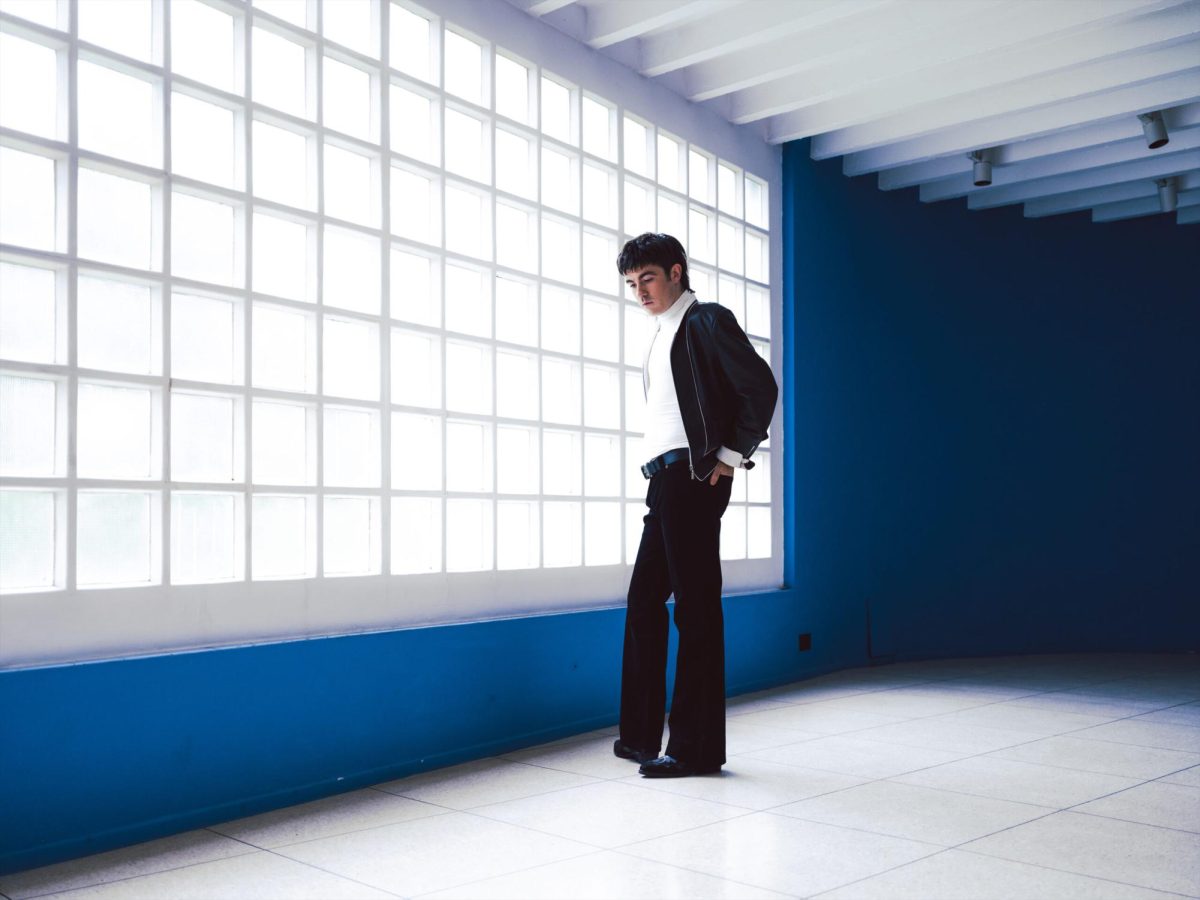English singer-songwriter Declan McKenna released his third studio album “What Happened to the Beach?” on Feb. 9, marking the artist’s first album in four years. The record features 12 tracks, all of which feel bright, odd and dreamlike.
McKenna independently released his debut song “Brazil” when he was just 16 years old. The song gained some popularity when it was rereleased in his 2017 album, “What Do You Think About the Car,” but grew even more recognizable after it went viral on TikTok years later. Eventually, McKenna became a household name in the bedroom-pop scene.
He has since released two EPs and three studio albums. McKenna’s previous work is the pinnacle of indie pop, although he has occasionally strayed into rock. “What Happened to the Beach?” does feature some indie-pop and rock moments, such as in “The Phantom Buzz (Kick In)” and “Mulholland’s Dinner and Wine,” but still leans most into psychedelic rock.
Every aspect of the new album is excitingly fresh. Its instrumentals prominently include synthesizers, electric guitar and drums, all of which crafts a funky and atmospheric feeling. This energy is not entirely new to McKenna’s music, but is certainly heightened by the intensity of the electronic sound within this new record. McKenna’s clearly having fun vocally, experimenting with different inflections and style of singing, often significantly distorting his voice to create an endearingly disturbing sound. He’s still the same singer fans adore, just a more playful version who has realized that his career can be a source of creativity and freedom.
Thematically, McKenna brings listeners along as he explores his emotions surrounding artistic creation in the public eye. Both “It’s an Act” and “Nothing Works” directly expand upon this, specifically on the difficulties that arise from fame. They discuss how being an artist with an audience can add certain pressure to put on a show. In “It’s an Act” McKenna writes, “So you call it a show, it’s an act / Not like you to be so matter-of-fact / You call it a dream, when it’s hell,” essentially stating that the artist puts on an act of happiness — declaring their life to be wonderful when it’s really miserable.
In “Nothing Works,” McKenna describes the consequences that putting on this act can cause. He writes, “I feel wrong, I feel rehearsed,” suggesting that this performance the artist must put on might cause them to lose their honesty and authenticity. This can be especially troubling as a creative, because a majority of the work comes from the artist’s genuine emotion. McKenna grapples with having lost this but still needing it to survive as an artist, something he’s managed to do for the last nine years. Luckily, though, this new record seems to have struck a new creative bone in his body, proving that sometimes change is all you need.
It’d be rare, and even unheard of, to find an album by McKenna that doesn’t address current politics and world affairs. “What Happened to the Beach?” continues this trend in the song “I Write The News.” He describes an argument between “Labour kids” and “some Kensington dude.” While previously McKenna may have used a song like this to make a straightforward point about privilege, unfair labor conditions or corruption. Now, though, he turns the situation into satire by disarming the argument with the roll of a “spliff.”
Underneath all of the psychedelic distortions in this new album, the Declan McKenna that audiences know and love is still there — he’s just having a fun time experimenting musically. Slowly stepping away from indie-pop, McKenna embraces his inner childhood through the bright tone and eccentric sound of his music, but still delves deep into the curiosities and concerns of his mind, making room for innocence and maturity to coincide. Audiences are now simply left wondering what he will explore next and how it will sound.
Contact Skylar Boilard at [email protected].























































































































































